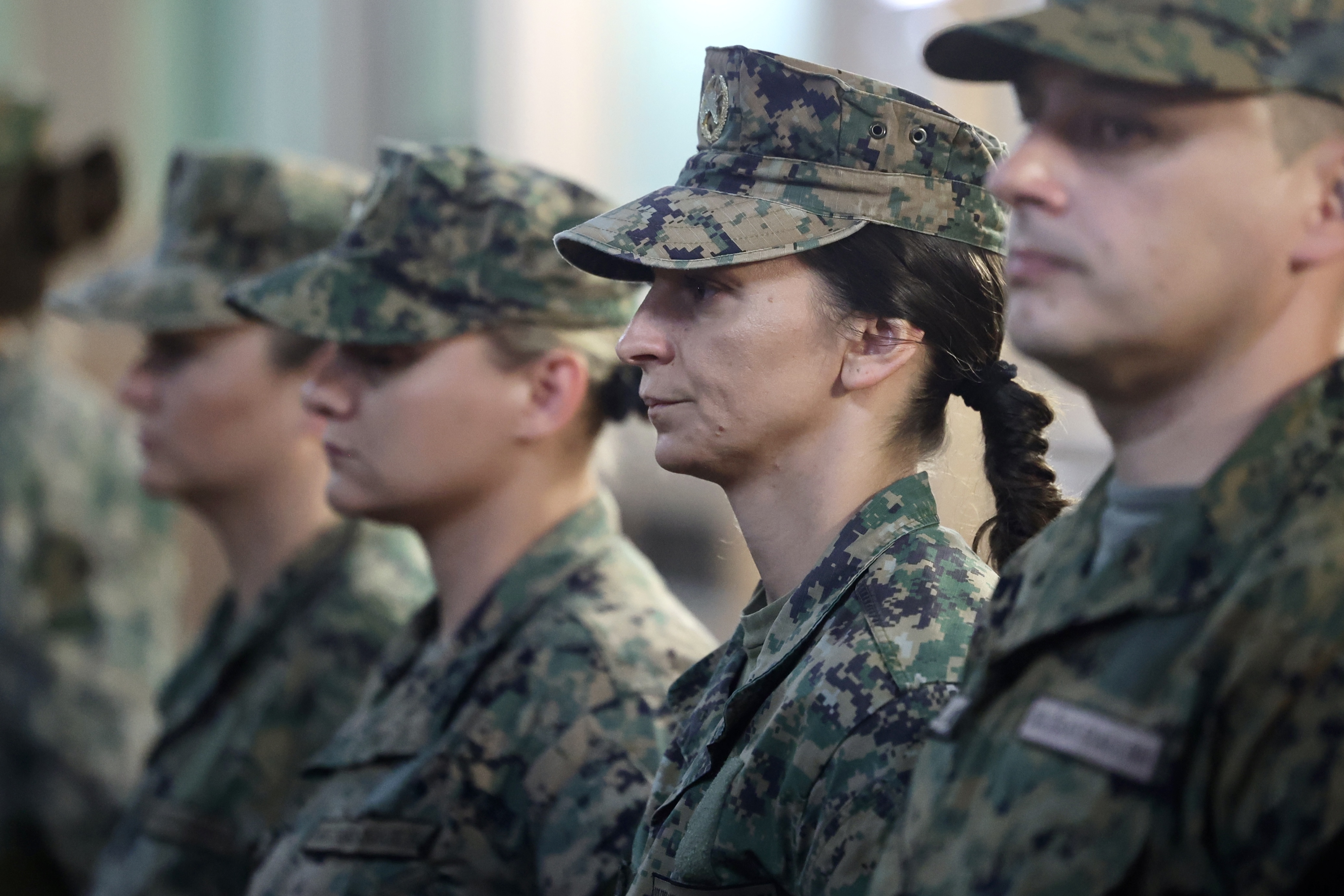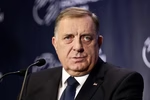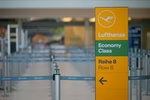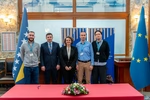
Bosnia and Herzegovina allocates only 0.9% of its GDP for defense, which is far from the 2% target recommended by NATO for its member states. Additionally, the Armed Forces of Bosnia are currently lacking about 1,500 professional military personnel, along with equipment meeting NATO standards, which would enhance land and air mobility.
According to the latest data, most of the 32 NATO member states do not allocate 2% of their GDP for defense. On the other hand, in the region, Serbia, which, like Bosnia, is not a NATO member, spent over 1.5 billion dollars on defense last year, which is about 2% of Serbia's GDP, marking the highest defense spending in the country's recent history.
Increasing defense spending from the current 0.9% to the projected 2% would create positive conditions for the overall progress of the Armed Forces of Bosnia and Herzegovina, enhancing their effectiveness, readiness, professionalism, interoperability, and compatibility with NATO and EU member forces. This view was expressed in a statement by the Ministry of Defense of Bosnia and Herzegovina.
Regarding equipment (weapons and military gear), the Ministry notes that the most pressing need is for equipment that meets NATO standards, which would improve land and air mobility.
The Ministry further emphasizes that the Armed Forces have developed 16 projects that clearly define their future modernization needs.
"In the future, we expect that the planned financial resources for the implementation of these modernization projects will be available to the Armed Forces of Bosnia and Herzegovina, allowing us to realize them and improve the level of equipment for the Armed Forces' commands and units," said the Ministry.
They add that the previous budget allocations and implementation levels did not align with the pace and requirements for the development and equipment of the Armed Forces, which, they note, is below the level of funding for armed forces in neighboring countries and generally below international trends.
Given that some equipment has become outdated, inherited from the former entity armies, some equipment and supplies for the Armed Forces' commands and units were obtained through donations. Donations and financial aid for the Armed Forces are made through international agreements, contracts, and other means, signed by the Ministry of Defense or the Council of Ministers of Bosnia and Herzegovina.
This includes donations of motor vehicles, equipment for the Explosive Ordnance Disposal (EOD) unit and demining, where new vehicles were obtained for transporting EOD team equipment and the latest protective robotic gear for EOD team members, along with equipment for air forces, military police, and the Light Infantry Battalion.
The Ministry expects maximum support from the relevant institutions for the implementation of the Procurement and Equipment Plan for the Armed Forces, based on developmental principles, not only through budgetary funds but also through other legally allowed guarantees.
Due to the natural cycle (retirement, contract expiration, etc.), the Armed Forces currently lack about 1,500 professional military personnel. This year, they plan to recruit around 1,300 new personnel.
Regarding the introduction of mandatory military service, they note that its abolition was part of the defense system reform in Bosnia and Herzegovina, a significant step in establishing a unified Ministry of Defense and modern, operational Armed Forces of Bosnia and Herzegovina.
"Reintroducing mandatory military service would require detailed analysis and planning, and only based on an established plan could one discuss all the aspects that would impact such a complex process like the reintroduction of mandatory military service in Bosnia and Herzegovina," they state, adding that, based on the aforementioned, the Ministry of Defense of Bosnia and Herzegovina does not consider the conditions ripe for exploring this topic.
Kakvo je tvoje mišljenje o ovome?
Učestvuj u diskusiji ili pročitaj komentare





 Srbija
Srbija
 Hrvatska
Hrvatska
 Slovenija
Slovenija



























































